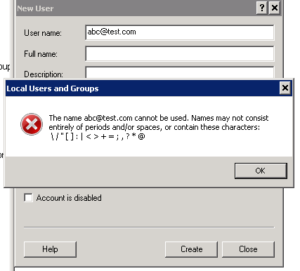I was trying to image a mSATA SSD with Ghost in Windows (I’m using version 12.0.0.8023 Corporate Edition as I bought the Altiris license) and I ran into internal consistency error 8027 right at the very beginning of the copying process.
For some reason, it doesn’t happen if I boot to the DOS version (provided by Agilent) to do the cloning.
Luckily the status bar tells me what’s going on during the process. I notice it always hangs when ghost tells me that it’s TRIMming the SSD. I looked up the help file (ghost32.exe -help) and noticed that there’s a “-NOTRIM” option. Tried it and the clone completed successfully.
Turns out Symantec is aware of it. The title of the support article is called “Cloning Solid State Disk (SSD) drives fails when using the UEFI 12.0.0.x Ghost executables“.
The summary says it since older versions (11.5.1.x) does not have TRIM, this isn’t a problem, and
“Build 12.0.0.8003 (from GSS 3.0 early build) resolved the issue with the partition restore”
I’m not sure what it means. But the solution is the same as what I did: disable TRIM when copying SSD in Windows (done by the -notrim switch).
![]()
